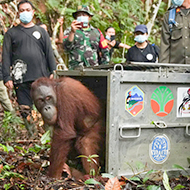Charity concerned that gene-editing could impact animal welfare.
The RSPCA has spoken out against a new law, warning it could lead to genetically-engineered pets and farm animals suffering from harmful and exaggerated physical features.
The Genetic Technology (Precision Breeding) Act received royal assent on Thursday, 23 March, paving the way for the creation and marketing of genome-edited plants and vertebrate animals in England.
The bill allows for gene editing in cases where the genetic changes could have happened naturally or through selective breeding, but does not allow for genetic modification in which additional genes are added to an organism.
In response to the passing of the bill, the RSPCA has expressed its concern about the possible animal welfare implications of this new technology. The charity warns that editing an animal’s genome could cause distress, suffering and lasting harm, especially as safeguards have not yet been properly identified.
David Bowles, the RSPCA’s head of campaigns and public affairs, said: “Gene editing could be a huge step backwards for animals. We do not believe this Act should include animals, whether they are farm, pet or wildlife. Invasive procedures are needed to create each line of gene edited mammals, there is no history of use for this powerful technology, and it can cause unintended changes to the genome, with unpredictable effects. The RSPCA has serious animal welfare and ethical concerns about this.”
The charity is also concerned about the scope of the law, which allows for the gene-editing of non-farm animals. With selective breeding for exaggerated characteristics already causing serious harm for brachycephalic animals, the RSPCA is worried that gene-editing could make this problem even worse.
Mr Bowles said: “We feel there is no justification whatsoever for non-farm animals to be covered by the Bill. Ongoing demands for dogs and cats with harmful physical characteristics and exaggerated conformational features and relentless pressure on sporting animals, are already of deep concern, and there has been no public consultation on gene editing non-farm animals.
“By allowing the inclusion of all vertebrate animals within this Bill, the UK Government is opening a Pandora’s box of what could be allowed in the future.”
However, despite these concerns, the new law has been welcomed by many scientists and researchers, who see gene-editing as an important tool for developing crops and livestock which are more resistant to disease and can cope better with changing climate conditions.
The new rules will be phased in, alongside the introduction of a new regulatory system.
Announcing the news, Defra stated: 'While there is great potential for increasing innovation, the government recognises that there is a need to safeguard animal welfare in the new regulatory framework. That is why we are taking a step-by-step approach, enabling use of precision breeding technologies with plants first followed by animals later.'






 The Federation of Independent Veterinary Practices (FIVP) has announced a third season of its podcast, Practice Matters.
The Federation of Independent Veterinary Practices (FIVP) has announced a third season of its podcast, Practice Matters.
